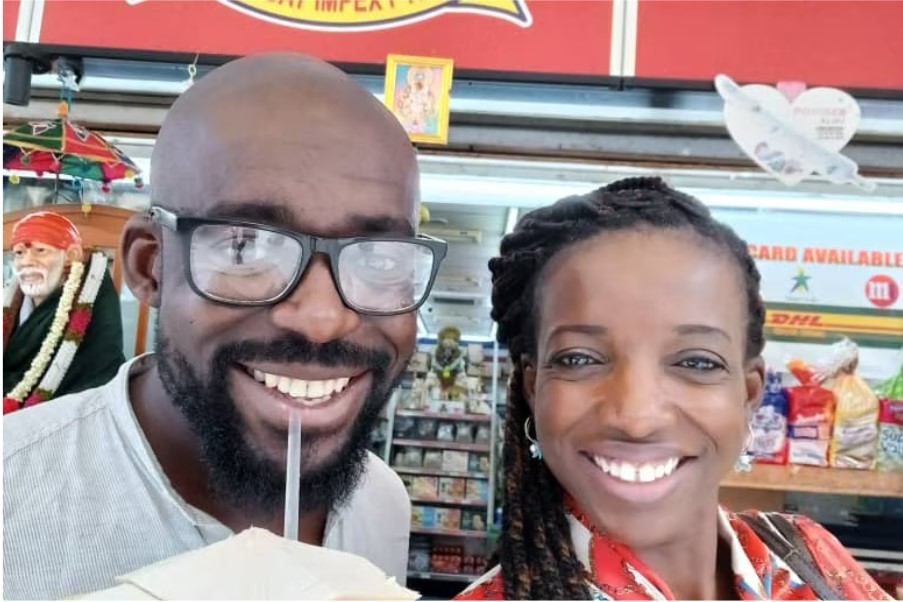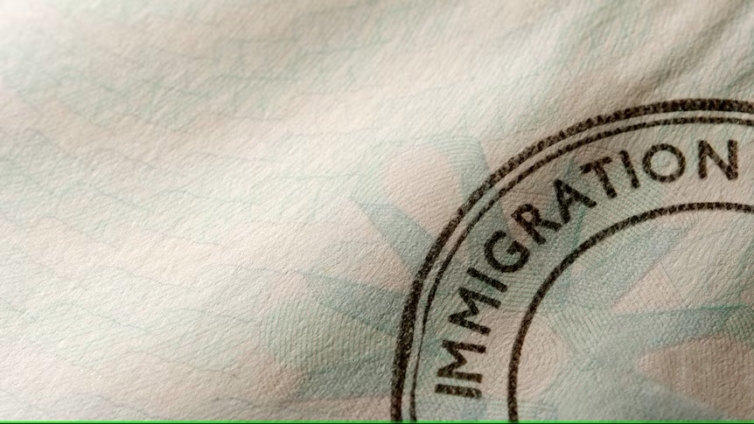I recently had to make a sudden trip to Singapore, and as much as I love the city-state, I could have done without the trip, all things being equal. But all things are not equal — in particular, not all passports are equal. This was made abundantly clear to my sister. She travels on a Ghanaian passport. I, on the other hand, have the good fortune of having an Australian passport.
My sister is an anaesthesiologist at the main hospital in Ghana, the Korle-Bu Teaching Hospital in Accra. She was in Singapore attending the World Anaesthesiology Conference as part of the Ghanaian delegation. We thought that she could pop over to Canberra to visit us. I had last seen her five years ago and she had never met my children.
We duly submitted a tourist visa application, along with supporting documentation — bank statements, a letter from her employer, flight itinerary, an invitation letter from me, copies of her visas to other countries.
Nonetheless, the application was denied on the grounds that “the applicant had not provided sufficient evidence that they genuinely intended to stay temporarily in Australia”. The rejection letter went on to read:
"the applicant had family members in Australia, who had offered to provide support during their stay. While I have given weight in my assessment, I have taken into consideration their personal circumstances, commitments, and incentives to return to their country of residence. Bearing this in mind, I find that their close family ties may act as a strong incentive for them to remain in Australia …"
Never mind the fact the consular official is insinuating that I will willingly allow my sister to break the law, the whole assessment was made on conjecture, subjective opinion, and — might I add — prejudice.
After consulting with friends, some of who work in the Department of Home Affairs, we decided to re-apply, adding more information and with a letter addressing all the points raised in the visa refusal. In it, we stated that she is highly trained, has a good paying job (as one of a handful of paediatric anaesthesiologists), and has a husband and three children (the youngest is 2 years old). We also noted that she will be unable to practice medicine if she were to remain illegally, and she was aware of the many legal channels open to her as a highly skilled professional.
Her second visa application was denied. The reasons given were the same, but this time the letter included the pronouncement, “all decisions are final”.

After the initial shock, and my sister going through all the stages of grief — she had never been denied a visa, and having one (in fact, two) denial(s) now made it difficult for other visas since she had to declare in future applications — I decided to contact my local MP, who happens to be a fellow academic, Dr Andrew Leigh. A member of his staff called me back, very helpful, even apologetic, to inform me that he couldn’t get involved, and unfortunate as it may seem, consular officials are making decisions based on what they see in their day-to-day dealings with visa applications. In some countries, not to be named, as much as 80 per cent of the documents they see are forgeries — the implication, intentional or not, being that my sister had forged her documents.
Far be it from me to tell people how to do their jobs, but there is surely an easy fix to this problem. Some years ago, the Australian National University (ANU), where I teach, noticed it was receiving a large number of fraudulent student applications. Consequently, they introduced a scheme whereby all applicants were to submit their applications through registered in-country migration agents, whose costs were deducted from the admission fees. Almost immediately, the number of fraudulent applications reduced to almost zero.
Part of the problem, for applicants, is the fact that there is so little transparency in the visa application process, and the consular officials have immense, almost God-like, powers. And while every applicant has a right to appeal to the Administrative Appeals Tribunal, this comes at a sizeable cost — lodgement is $3,400 and lawyers cost upwards of $5,000.
My sister and I have been lucky, and I am acutely aware of the relative privilege that accompanies our professions. She doesn’t need the Australian visa, and the rejections she received will be a blip on her otherwise unblemished migration history. However, there many people who are not so lucky.
In my role as Associate Dean of the College of Arts and Social Sciences at ANU, we are launching a Global South fellowship which is meant to identify promising early to mid-career researchers from Africa, the Pacific region, Asia, and South America.
Last year I attended the World Statistics Congress in Ottawa, Canada. I had the good fortune of meeting there a researcher from Colombia, who has developed a statistical procedure to produce high-dimensional data in poor resource countries. Their research was innovative and has been used by the United Nations in poverty estimation. They would be an ideal candidate for an ANU visiting fellowship — but it is highly likely that they would have their visa denied due to their lack of travel history, and country that issued their passport.
One can only imagine the ramifications of this on their otherwise promising career — a denial which would have far less to do with the merits of the applicant, and more to do with (flawed) opinion, (unsubstantiated) judgement, and outright prejudice.
Bernard Baffour is an Associate Professor in the School of Demography and the Associate Dean of Inclusivity, Diversity, Equity and Access (IDEA) at the College of Arts and Social Sciences at the Australian National University.
Latest Stories
-
BBC News team engages UniMAC-IJ students on podcasting and the future of journalism
3 minutes -
Afriyie Barnieh joins Swiss second-tier side FC Aarau on two-year deal
5 minutes -
Phase 1 of ‘Big Push’ infrastructure programme to begin this month -Road Minister
7 minutes -
Finance Minister calls for ruthless action against gold smugglers
7 minutes -
Ghanaian forward Ibrahim Osman set for AJ Auxerre loan spell
8 minutes -
Finance Minister backs Ghana Gold Board, commends progress
10 minutes -
Government to release GH¢4bn to resume stalled road projects
12 minutes -
NPP fiercely rejects Ablekuma North rerun, insists on victory with ‘undeniable evidence’
16 minutes -
Kwaprow Zongo Chief receives recognition as ECOWAS special envoy for diplomacy
18 minutes -
GoldBod revolution: Over 300 new trading licenses issued – Sammy Gyamfi
30 minutes -
UEW Dean gives back to hometown, supports classroom project in Northern Ghana
30 minutes -
24-Hour Economy Secretariat unnecessary – Trade Expert
35 minutes -
Thomas Partey: The key questions about midfielder charged with five counts of rape and one count of sexual assault
44 minutes -
It’s time for Ghanaians to own gold mines – President Mahama
47 minutes -
GoldBod Taskforce launch: Mahama promises 10% reward for whistleblowers
51 minutes

